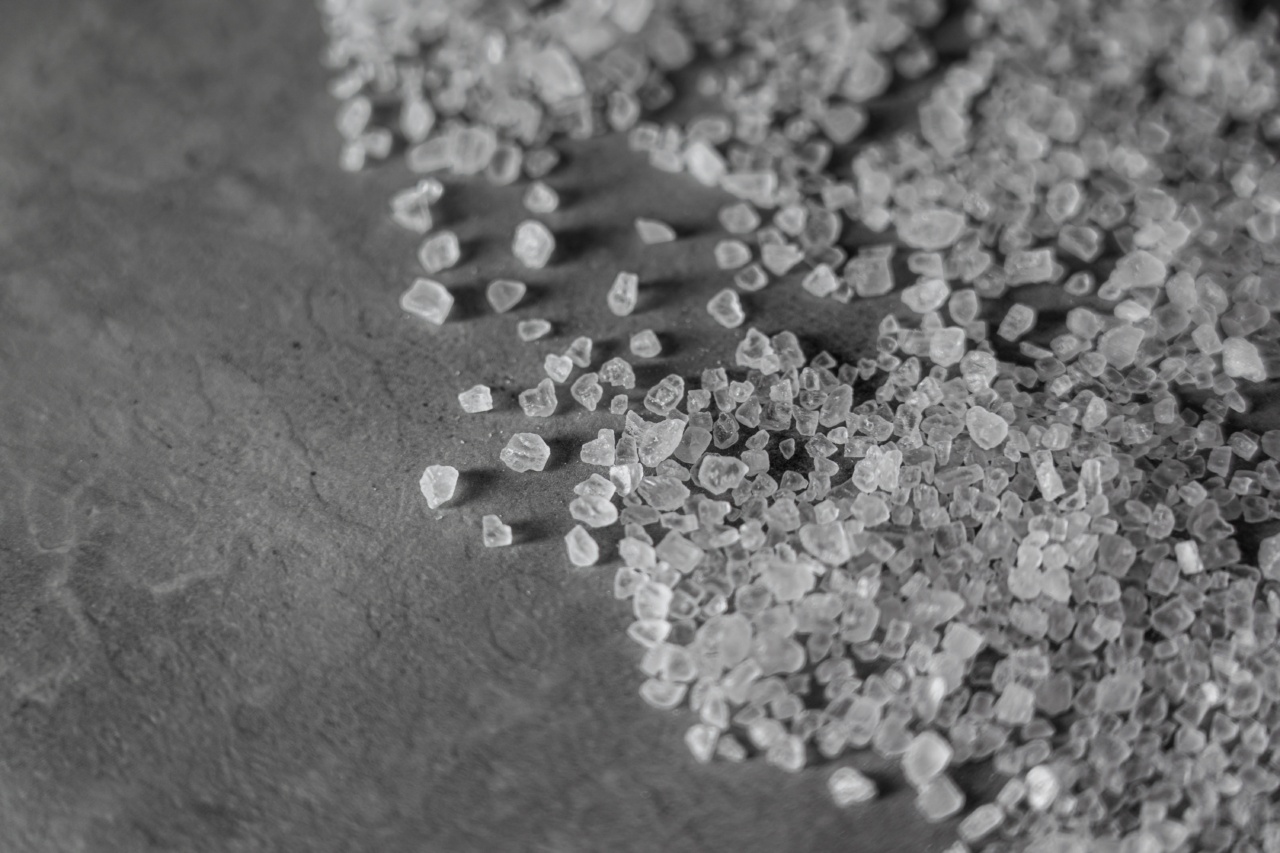In today’s fast-paced, convenience-driven world, it’s no surprise that many people find themselves drawn to the addictive allure of salty snacks.
Whether it’s a bag of potato chips, a handful of pretzels, or a bowl of salted popcorn, our cravings for salt can sometimes feel insatiable. But why are we so addicted to that familiar, savory taste?.
The Role of Salt in our Bodies
Salt, scientifically known as sodium chloride, is a fundamental component of our bodily functions. It helps regulate blood pressure, balance fluids, and maintain nerve and muscle function.
Our bodies need a certain amount of sodium to thrive, but too much can have detrimental effects on our health.
From an evolutionary standpoint, our addiction to salt makes sense. Back in ancient times, salt was a rare and valuable resource.
Our ancestors would often go to great lengths to acquire it, recognizing its importance in preserving food and sustaining life. As a result, our taste buds became wired to crave salt, ensuring we would seek it out whenever possible.
The Science Behind Salt Addiction
Our brain plays a significant role in our love for salt. When we consume salty foods, the brain’s reward center releases dopamine – a neurotransmitter associated with pleasure and reward.
This feel-good chemical reinforces our desire for salt and encourages us to consume more of it.
Furthermore, studies have shown that salt can act as a natural appetite stimulant. It enhances the flavors of other foods, making them more enjoyable and palatable.
This effect can make it particularly challenging to resist salty snacks, as they often enhance the taste of other ingredients.
Food Industry Tactics
The food industry understands our salt cravings all too well. They know that making their products saltier can increase consumer satisfaction and encourage repeat purchases.
As a result, many processed and packaged foods are loaded with excessive amounts of sodium, far beyond what our bodies actually need.
This tactic of “saltiness engineering” has been widely criticized for contributing to the public health issues associated with excess salt consumption.
Excessive sodium intake has been linked to high blood pressure, heart disease, stroke, and other health concerns. The overconsumption of salt is a global problem that requires attention and education.
The Salty Addiction Cycle
Breaking the cycle of salt addiction can be particularly challenging. The more salt we consume, the more our taste buds become desensitized to its taste.
This means that over time, we need to consume even more salt to experience the same level of satisfaction.
Additionally, studies have shown that high levels of salt intake can alter our taste preferences. People who consume large amounts of salt tend to have a decreased sensitivity to other tastes, such as sweet or bitter.
This can lead to an overconsumption of unhealthy, salty foods and a neglect of more nutritious options.
Health Risks of Excessive Salt Consumption
The health risks associated with excessive salt consumption should not be underestimated. High levels of sodium in the diet can lead to fluid retention and increased blood pressure, putting a strain on the heart and cardiovascular system.
This can ultimately increase the risk of heart disease, stroke, and kidney problems.
In addition to these cardiovascular concerns, excessive salt intake has also been linked to stomach cancer, osteoporosis, and obesity.
It’s essential to recognize that the addictive allure of salt can have serious consequences for our long-term health.
Breaking the Salt Addiction
While the salty truth may be hard to swallow, there are steps we can take to break the salt addiction cycle and reduce our sodium intake:.
- Read Labels: Pay attention to the sodium content on food labels and choose lower-sodium options whenever possible.
- Cook at Home: Preparing meals from scratch allows you to control the amount of salt in your dishes.
- Experiment with Herbs and Spices: Instead of relying solely on salt for flavor, try using a variety of herbs, spices, and other seasonings to enhance the taste of your meals.
- Limit Processed Foods: Processed foods are often high in sodium, so try to limit your consumption of pre-packaged snacks, canned goods, and fast food.
- Gradually Reduce Salt: Gradually decrease the amount of salt you add to your meals and snacks over time. Your taste buds will adjust, and you may find that you no longer crave excessive saltiness.
The Importance of Balance
While it’s important to be mindful of our salt intake, it’s equally crucial to recognize that sodium is an essential nutrient that our bodies need to function properly. Maintaining a healthy balance is key.
By reducing our reliance on processed foods and adopting a more whole foods-based diet, we can naturally decrease our salt intake and prioritize healthier choices.
The journey to breaking free from salt addiction may not be easy, but it is certainly worth pursuing for the sake of our long-term health and well-being.






























